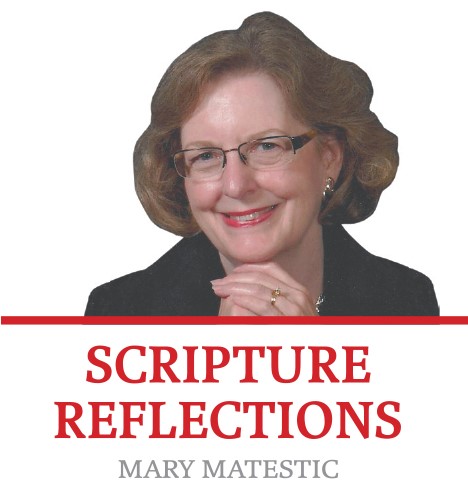Scripture Readings, July 2, 2023
THIRTEENTH SUNDAY IN ORDINARY TIME
2 Kings 4:8-11; 4-16a
Romans 6:3-4, 8-11
Matthew 10; 37-42
Women who are barren often feel forsaken. Betrayed by their bodies, surrounded by other peoples’ babies, struggling with the medical interventions that can perhaps encourage fertility, they work to resist the temptation to give up hope that one day they might bear a child. My daughter suffered through her first six years of marriage praying, pleading and trying to conceive a child. But to no avail. Tears were her monthly companion and a deep knowledge that she and her husband had been left out of the biological treasure of motherhood and fatherhood. Until she made a pilgrimage with her husband to the shrine of St. Gerard at St. Lucy’s Church in Newark, New Jersey. While praying quietly before the statue of the Virgin Mary after Mass, a young woman came up from behind her, holding an infant.
The woman bent over and said, “This time next year, you will be holding your own child.”
My daughter was perplexed. How could a complete stranger promise something utterly out of her realm of knowing. Yet, the following year, our daughter did have a child, a little girl, who is now 20. Her name is Anna.
When Elisha, the holy man of God, asks about how he can give back to the couple who have been so hospitable toward him, and when his servant, Gehazi, indicates that the couple had no child, Elisha uses similar words that were spoken to my daughter: “This time next year, you will be fondling a baby son.” What Elisha promised this gracious couple was birth. And birth always challenges one to care for the other. Birth offers the challenge to put aside the self and to make room for another person with all their differences and needs. Within the experience of birth lies the essence of hospitality. Life yields to life.
When our Anna was immersed into the waters of Baptism, joy filled our hearts knowing that she now claimed the dying and rising with Christ in her very infant being. Today, she thinks often of her Baptism; she seems to see God face to face, trusting in God’s will for her despite the struggles. From her very beginnings, Anna received an inner call to follow the Lord in religious life. While she waits for it to be realized, she helps me to be ever aware of God’s sacred and most holy will in the cracks and crevices of life. She notices the smallest things and points them out to me as signs of God’s infinite love.
I have watched the fruit of her call, to leave everything to follow Christ. Amidst the great joy, there is sometimes grave torment as to which way to go and how to follow. But as Thomas Merton prays: “The fact that I think that I am following your will does not mean that I am actually doing so. But I believe that the desire to please you does in fact please you.”
People who have a call to consecrated life are indeed prophets, for they see a divine reality beyond the groaning of the culture. They appear to rise above the darkest dark with an inner eye and a tranquil spirit that is in fact the prophet’s reward. They seem to have an impeccable moral code that is not born of self-righteousness, but of love — a deep abiding love for God and for the cross taken up each morning of their lives.
Anna has gone on several missions with the sisters she aspires to join — Dallas, Phoenix, Mankato, to name a few. Heat or cold, distance or proximity never factors in, only the pure service of God in the people, the marginalized people they serve. They laugh a lot and pray even more. Food comes to them out of the generosity of the communities they serve. They are a mendicant order — something so medieval to our secular understanding.
Who lives like this, I wonder. Who denies everything to love God with such intensity? Only those, I believe, who know what Matthew’s words mean: “Whoever receives you, (the disciple) receives me (Christ); and whoever receives me (Christ) receives the one who sent me (the Father).” This is discipleship in its purest form: that one acknowledges God as ultimate source of power, life and meaning. They are the ones who have found the pearl of great price and who reorder their personal, communal, and collective lives on behalf of the poor. Thus, they can “let go,” trusting in the God whom they serve.
Elisha trusted in God, and God provided space for him out of the generosity of the Shunamite couple. Anna trusts in God to lead her through the web of discernment. It is radical; but then again, the Christian life is radical.
The secular world needs everyday disciples as well. We may eat well, not beg for our food; we may live in families, not in communities; we may pray more simply, not sing in Gregorian chant; but if our hearts are turned toward Jesus, the Holy One, we too will also know that giving a cold cup of water to the least of God’s children qualifies for discipleship and has its own reward.

